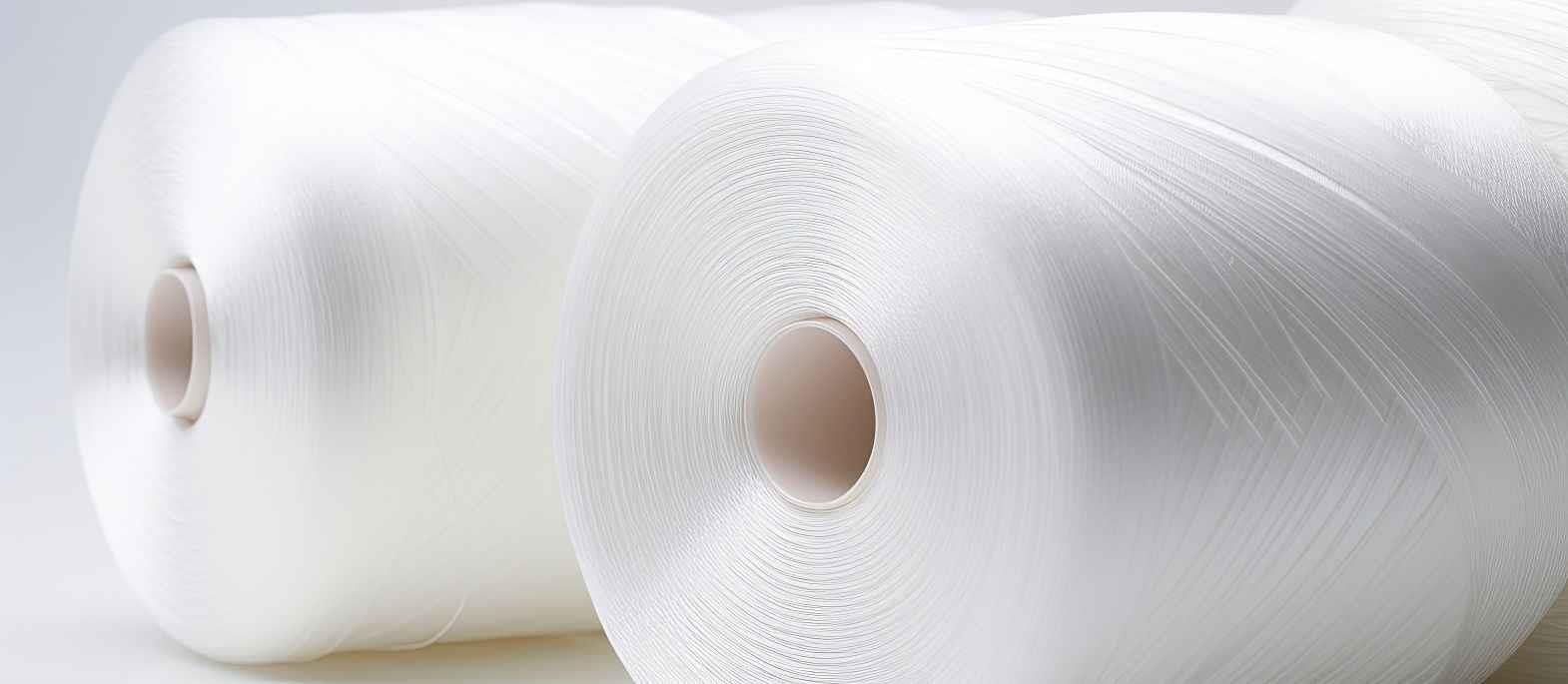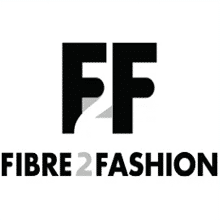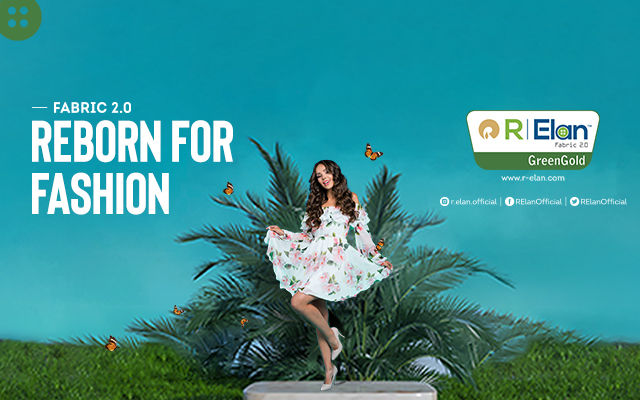INTRODUCTION
The PET industry has focused very much on Asia in recent years, and especially on China. But there is another Asian country with a one billion plus population - India. India is keen to join the march of progress and open up to PET, welcoming visitors and businessmen with open arms.
Companies have put up PET melt phase capacities to be able to cater to the polyester users. Several of them are operating sub-optimally. For raw materials they are dependent on large commodity petrochemicals manufacturers or on imports. Recent import duties on raw materials which affected the PET manufacturers adversely have now been rationalized in this year's budget, so that raw materials and intermediates attract the same level of import duties as the final product.
COMPANY LOGISTICS
Akai Impex at Silvassa, Dadra manufactures PET melt chip from purchased PTA and ethylene glycol. A PET melt expansion occurred in 1997. Some of the PET is used captively for polyester fibers.
Baroda Rayon at Surat manufactured PET from purchased PTA and ethylene glycol. The plant closed in 1999.
Bongaigaon Refinery at Bongaigaon manufactures PET from captive DMT and purchased ethylene glycol. The PET is used for production of polyester fibers. The plant was idled in 2001 with restart in 2004. Reliance Industries market the polyester fiber produced here beginning in 2004.
Century Enka Ltd. at Bamalla, Gujarat and Pune, Maharashtra manufactures PET from purchased DMT/PTA and ethylene glycol. The PET is used captively to make polyester fibres. Surplus chips are sold/transferred to associates and others. The company has been promoted by the Birla Group and AKZO of the Netherlands with equity being held by the Indian public as well. Rashree Polyfils and Century Enka merged in April 1997, but all the legal formalities in connection with the merger were completed only in 1999. The combined entity is now known as Century Enka Limited.
DCL Polyester at Nagpur, Maharashtra manufactures PET from purchased PTA and EG. Beginning in May 2000, DCL began producing PET and polyester fiber exclusively for Reliance Industries. In 2001, DCL Polyester has been acquired by Synergy Synthetics Ltd., a group company of Reliance Industries.
Elque Polyesters at the Falta Export Processing Zone manufactures PET resin using technology provided by Sunkyong of South Korea and Buhler of Switzerland. The PET is used captively to produce bottle resins. The company restarted operations in 1999 that had been idle for two years. The company's earlier expansion plans have now been put on 'hold'.
Ester Industries at Khatima, Uttar Pradesh manufactures PET from purchased DMT and EG. PET melt capacity expanded in 1997. PET melt is used captively to produce polyester films.
Flex Chemical at Malanpur, Gwalior, Madhya Pradesh, built a 50,000 mt/y PET plant to meet the rapidly growing demand of polyester film manufacture of its associate, Flex Industries. The plant expanded PET melt capacity in 2001.
Futura Polymers at Madras manufactures PET chips from purchased raw materials. Most of the PET is captively used to make bottle resins for export. Pepsi Co. U.S.A. was a partner in this plant but has divested its stake at a nominal price to joint venture partner Indian Organic Chemicals. The plant expanded PET melt capacity in 2002-03.
Garden Silk Mills at Surat, Gujarat manufactures PET melt chip from purchased PTA and ethylene glycol. The PET is used captively for polyester fibers.
Garware Polyester at Aurangabad, Maharashtra manufactures PET from captive/purchased DMT and purchased PTA and EG. The PET is used captively to make polyester film, of which Garware Plastics is the largest manufacturer in India. Garware purchased an idled DMT plant and moved it from the Czech Republic. It was rebuilt and expanded at Aurangabad.
Capacity for film was increased from 25,000mt/y in 1995 to 50,000 mt/y in 1997, when a continuous polycondensation plantwas established. The company is a major exporter of polyester film.
Hindustan Photo Films at Bhulandshahr manufactures PET melt from purchased DMT and ethyleneglycol. The PET melt is used captively for polyester film.
India Polyfibres at Bara Banki manufactures PET from PTA and ethylene glycol. Most of thePET is used captively to make polyester fibers on a conversion basis forReliance Industries. The company is now a part of the Reliance group.
Indian Organic Chemicals at Madras manufactures PET from purchased DMT/PTA and ethylene glycol.Most of the PET is used captively to make polyester fibers.
Indo-Rama Synthetics at Nagpur, Maharashtra manufactures PET from purchased PTA and ethyleneglycol. The PET is used captively to make polyester fibers. A recent expansionadded 150 t/d solid stating capacity. The company has further plans to increasePET capacity at Nagpur to 586,000 mt/y by 2006.
J K Corp Ltd. - see Reliance.
JCT Ltd. atHoshiarpur, Punjab manufactures PET from purchased DMT/PTA and EG. The JCTpolyester business has been acquired by Reliance Industries. Reliance group'sTerene Fibers has made the acquisition.
Jindal Polyester at Bulandshahr, Uttar Pradesh and Nashik, Maharashtra manufactures PETfrom purchased raw materials. The Bulandshahr plant was expanded in 1999, andNashik will expand in 2004. Most of the output is used captively for polyesterfibers and film production.
Modern Petrofils at Baroda, Gujarat manufactures PET from purchased PTA and EG. The PETis used captively to make polyester fibers. Modern Petrofils is a subsidiary ofModern Syntex.
Modipon atGhaziabad, Uttar Pradesh manufactures PET from purchased DMT and ethyleneglycol. Most of the PET is used captively to make polyester fibers.
MTZ Polyester at Patalganga, Gujarat manufactures PET from purchased DMT and ethyleneglycol. The company acquired a controlling interest in Tributon Exports, andpurchased a DuPont polyester plant at Brevard, North Carolina, and a compositeplant from Lindauer Dornier, also in the United States. The plants werere-erected in India, and refurbished to produce polyester film and otherproducts.
Nakoda Textile at Silvassa, Dadra manufactures PET melt chip from DMT or PTA andethylene glycol. The PET is used captively for polyester fiber.
Parasrampuria Synthetics at Alwar, Rajasthan and Bhiwadi, Rajasthan manufactures PET from DMT forcaptive use in making polyester fibers and solid-state bottle resin.
Pearl Engineering Polymers (PEPL) at Kurkumbh, Maharashtra manufactures PET from purchased PTA andethylene glycol. It produces PET bottle resins, mainly for use by its promotercompany, Pearl Polymers Ltd. (PPL) at various locations such as Delhi,Bangalore, and Mahad. Zimmer AG of Germany provided complete technology for theproject and retains an equity share of the company.
Petrofils Cooperative at Vadodara manufactured PET from purchased DMT and ethylene glycol.Most of the PET is used to produce polyester fibers. The company was closed in2000 for economic reasons.
Polyplex at Khatimamanufactures PET resins from purchased ethylene glycol and DMT or PTA forcaptive use in polyester film. The company is now a major player in thepolyester films market. Recently it has announced plans to add a third line of15,000 mt/y capacity at Khatima.
Rajashree Polyfils - see Century Enka.
Raymond Synthetics at Allahabad, Uttar Pradesh, manufactures PET from purchased PTA and EGfrom Reliance. Raymond produces about 8 kta of surplus chips above its requireddemand for polyester fiber. A Reliance affiliate, Silvassa Yarn andInvestments, purchased 36% of Raymond Synthetics and in late 1999 acquiredanother 20% to obtain a controlling interest.
Reliance Industries at Hazira, Gujarat manufactures PET from captive PTA and ethyleneglycol. The PET is used captively to make polyester fibers. Reliance built aseparate plant of 80,000 mt/y capacity at Hazira for PET bottle resins usingcaptive PTA and MEG. PET melt capacity will be expanded using DuPont's new NG3technology to produce PET solid-state resin in 2004.
Reliance at Lakshiminagar manufactures PET from purchased PTA and ethyleneglycol. Most of the PET is used captively to make polyester fibers. Relianceacquired the plant from J K Corp. in 1999 after the company incurredsignificant losses in 1997-1998 and decided to sell its polyester business. Theplant was converted to use PTA instead of DMT in 1999.
Reliance Industries at Patalganga, Gujarat manufactures PET from transferredethylene glycol and captive PTA. The PET is used captively to make polyesterfibers.
Sanghi Polyester at Hyderabad manufactured PET from purchased PTA and EG. The companyused most of the output captively to make polyester fibers. The plant wasclosed in 2000 due to financial difficulties.
Shree Synthetics at Ujjain manufactures PET from purchased DMT and ethylene glycol. Mostof the PET is used captively to make polyester fibers.
Somani Swiss Industries at Bhiwadi, Rajasthan manufactures PET from purchased raw materials. ThePET is used captively to make polyester yarn. Ems Inventa supplied technologyfor the POY plant.
South Asian Petrochem (SAP) at Haldia, West Bengal manufactures PET melt chip with Zimmertechnology. Zimmer will take a 5% stake in the venture, estimated at Rs 4.25billion (about US$ 100 million). The plant purchases PTA from Mitsubishi andethylene glycol to produce polyester solid state resin. Startup occurred inmid-2003.
Terene Fibresat Bombay manufactured PET from transferred PTA and ethylene glycol.Most of the PET was used captively to make polyester fibers. The company's namewas changed from ICI (India) to Terene Fibre (India) in 1993-1994 when ICI andReliance Industries Ltd. (RIL) made a strategic alliance to create a jointlyowned (50% each) venture. This is in effect a tolling arrangement as RILprovides the raw material, schedules production, and markets the entire output.Terene Fibers is now a part of the Reliance group. To improve efficiency, theplant at Bombay was closed and the equipment moved to Hazira.
Welspun Polyester at Silvassa started production of PET in 1999 for captive use to makepolyester yarn.
FOREIGN TRADE
About 4-5,000 tons were imported in 2000-03.Exports are negligible compared to production.
DERIVATIVE & USE
Most PET has been used for polyester fibermanufacture. Reliance, South Asian Petrochemicals, Elque Polyesters, EsterIndustries, Futura Polymers, Jindal Polyester, Parasrampuria Synthetics, andPearl Polymers manufacture bottle grade resins.
MTZ, Ester, Flex, Polyplex, Jindal, SRF, Hindustan Photo, Venlon Polyester, andGarware are using PET melt for polyester film manufacture. Total Indianpolyester film capacity will grow from 182,000 mt/y in 2002 to 273,000 mt/y by2005 with major expansions planned by Jindal and SRF.
ANALYSIS & OUTLOOK
With the polyester business growing around 9%per annum, and the use of PET in packaging growing around 24% per annum, andpolyester films at over 10% per annum, the future is bright. However, most ofthe producers who have put up small capacity plants suffer from the view pointof production economics. They also face severe problems of working capital.Many of them are likely to sell out to the bigger players.
At the end of 1999, Flex Industries and Polyplex announced their intentions toform United Film Technologies, a new company which would include their PET meltand polyester film plants in Noida and Khatima, both located in Uttar Pradesh.
FUTURE TRENDS FOR FEEDSTOCK
PTA will continue to be the preferredfeedstock for producing PET melt.









Comments